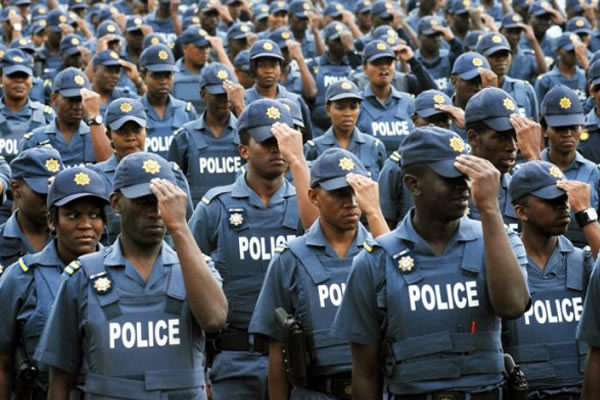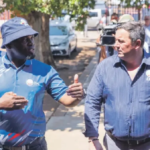KwaZulu-Natal police commissioner Nhlanhla Mkhwanazi has requested a R31 million allocation for the Political Killings Task Team (PKTT) to operate between August 2025 and March 2026. The requested budget includes R700,000 for stationery, R480,000 for laundry, and over R8 million for overtime pay for officers. Accommodation and overtime pay will constitute the largest portion of the requested funds.
Details of the PKTT's proposed spending are outlined in a letter from Mkhwanazi, which forms part of suspended Police Minister Senzo Mchunu’s evidence bundle before the ad hoc committee investigating the criminal infiltration of the police service.
During his testimony to Parliament’s ad hoc committee last week, Mchunu highlighted the substantial budgets allocated to the PKTT, which he claimed sometimes exceeded the funding available to permanent units within the South African Police Service (SAPS).
In a letter dated 23 July 2025, addressed to national police commissioner Fannie Masemola, Mkhwanazi formally requested approval for the R31 million to be used by the PKTT between 1 August 2025 and 31 March 2026.
Mkhwanazi recommended to Masemola that the estimated budget be approved and funded from the national budget. He further suggested that the budget be managed by the provincial office, as advised by the SAPS chief financial officer.
In a separate letter, SAPS chief financial officer Lieutenant General Puleng Dimpane confirmed that the funds were available. Dimpane stated that R27 million was available, "and should be managed in such [a way] that payments up to 28 February 2026 are paid during this financial year".
According to Mkhwanazi's letter, various meetings were held, and detailed progress reports were submitted to Mchunu regarding the disbandment of the PKTT. This follows Mchunu’s directive in December 2024 to Masemola concerning the disestablishment of the PKTT.
In March, a draft disbandment plan was presented to Mchunu, which he subsequently approved.
Mkhwanazi wrote: "It was agreed that in order to avoid adverse effects and unnecessary civil claims and to ensure continuity of cases, particularly those that are under investigation and those that are in court, the disestablishment and or disbandment will take the form of a phased-out approach."
The phased-out approach would involve transferring 125 cases under investigation (60 politically related, 46 related to traditional leadership matters, 16 parallel cases, two from the University of Fort Hare, and one ad-hoc case) and 10 dockets submitted for decision to the KwaZulu-Natal and Eastern Cape serious and violent crime units for further investigation.
“The newly reported cases linked with the National Political Killings Task Team’s mandate shall be referred to the KwaZulu-Natal Serious and Violent Crimes Unit (Murder and Robbery Unit). The 299 finalised, 57 withdrawn, and nine unfounded dockets to be returned to the stations of origin for filling purposes,” he stated.
The winding down process, as detailed in Mkhwanazi’s letter, also includes 110 dockets on the court roll that will remain with the investigating officers in KwaZulu-Natal and Eastern Cape until the finalisation of the prosecution processes.
These include 64 politically related cases, 22 parallel cases, 15 ad hoc cases, 14 University of Fort Hare cases, and five traditional leadership-related cases. "This will mean the gradual withdrawal of the remaining members until all cases are finalised," his letter read.
As of 15 May 2025, only 56 multi-disciplinary team members were overseeing the 110 court-going dockets and continuing with the outstanding investigation in preparation for trial, “as and when each case gets finalised, the dedicated detective and combat member will withdraw and return to their respective stations”.
Furthermore, Mkhwanazi stated that the 20 detectives will be responsible for the cases currently at court.
“Due to the high-risk nature and threat levels of these investigations, the investigation team (20 detectives and 15 prosecutors) are allocated 27 combat members for security and protection purposes. The five commanders are to monitor the cases in court and provide command and control. The three analysts (digital forensic and call data) are to finalise their analysis and section 212 statements for the cases at court,” he said.
The two administration personnel will handle financial admin and fleet management-related administration, and two guards are to safeguard the operational centre.
Meanwhile, Mchunu is expected to continue with his testimony on Tuesday.

Follow Us on Twitter











